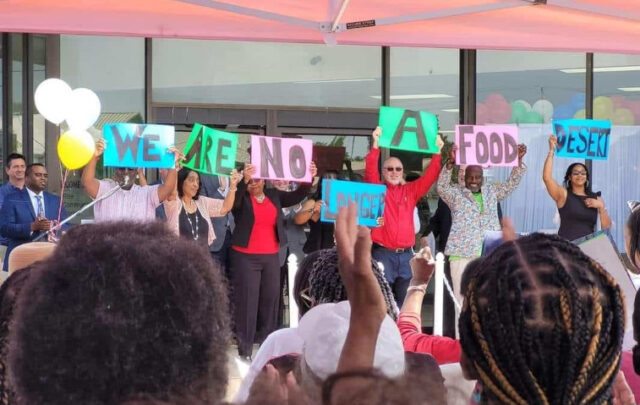 Tour a closed-loop water system where one critter’s wastes become another’s food. Inside a steamy greenhouse, Jeremy Roth of Aprovecho Center’s Aquaculture Project shows us fish tanks containing tilapia just like you might order in a restaurant. Water from the tanks is pumped through troughs where pond plants take in the nutrients from the fish. Plant material is then returned to feed the fish in their tanks. The nutrient-rich water is also diverted to nourish veggies like chard, tomatoes, and water chestnuts rooted in a shallow gravel bar. In this cycle, aquaponics yields generous quantities of high quality protein from a very small footprint. Episode 242. [aprovecho.net]
Tour a closed-loop water system where one critter’s wastes become another’s food. Inside a steamy greenhouse, Jeremy Roth of Aprovecho Center’s Aquaculture Project shows us fish tanks containing tilapia just like you might order in a restaurant. Water from the tanks is pumped through troughs where pond plants take in the nutrients from the fish. Plant material is then returned to feed the fish in their tanks. The nutrient-rich water is also diverted to nourish veggies like chard, tomatoes, and water chestnuts rooted in a shallow gravel bar. In this cycle, aquaponics yields generous quantities of high quality protein from a very small footprint. Episode 242. [aprovecho.net]

NOTE: Images in this archived article have been removed.




